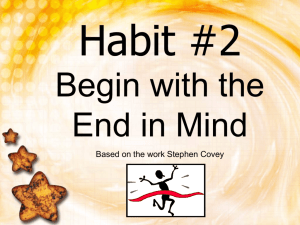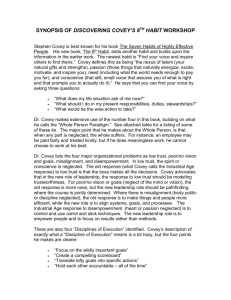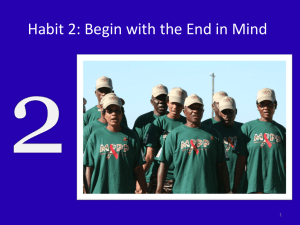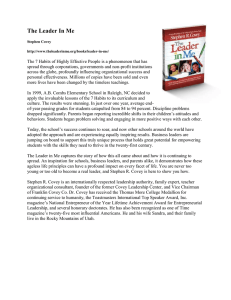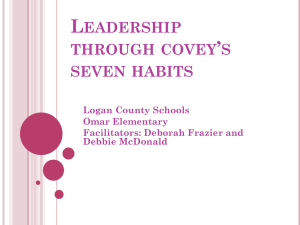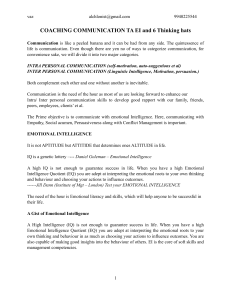7 Habits of Highly Effective Teens Study Guide
advertisement
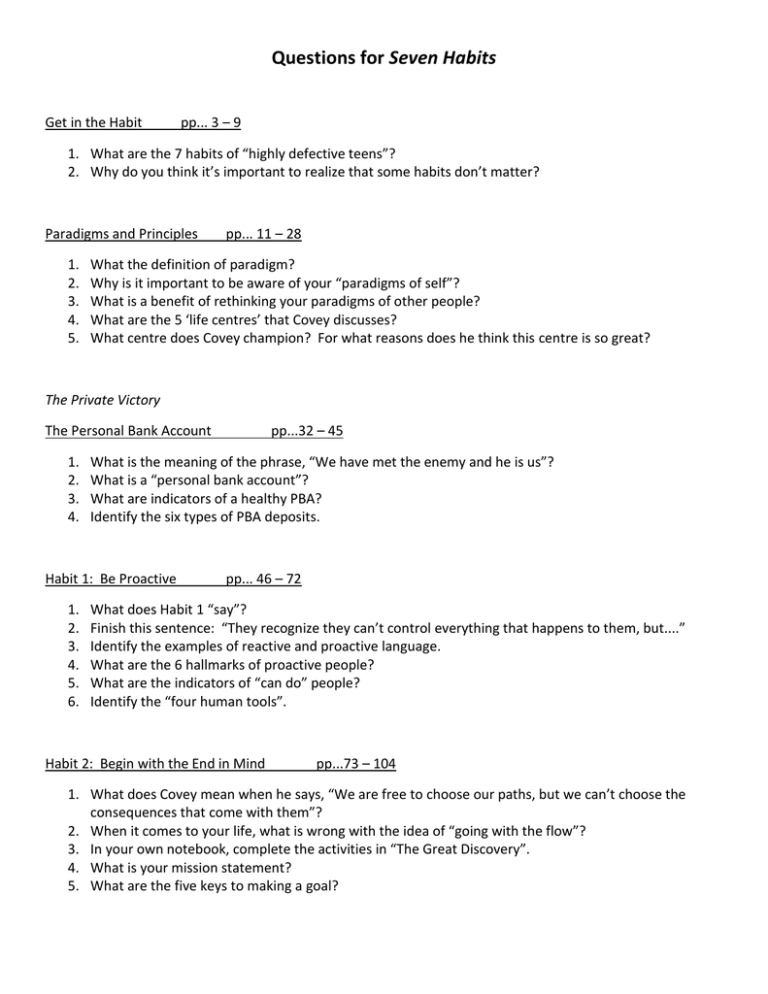
Questions for Seven Habits Get in the Habit pp... 3 – 9 1. What are the 7 habits of “highly defective teens”? 2. Why do you think it’s important to realize that some habits don’t matter? Paradigms and Principles 1. 2. 3. 4. 5. pp... 11 – 28 What the definition of paradigm? Why is it important to be aware of your “paradigms of self”? What is a benefit of rethinking your paradigms of other people? What are the 5 ‘life centres’ that Covey discusses? What centre does Covey champion? For what reasons does he think this centre is so great? The Private Victory The Personal Bank Account 1. 2. 3. 4. What is the meaning of the phrase, “We have met the enemy and he is us”? What is a “personal bank account”? What are indicators of a healthy PBA? Identify the six types of PBA deposits. Habit 1: Be Proactive 1. 2. 3. 4. 5. 6. pp...32 – 45 pp... 46 – 72 What does Habit 1 “say”? Finish this sentence: “They recognize they can’t control everything that happens to them, but....” Identify the examples of reactive and proactive language. What are the 6 hallmarks of proactive people? What are the indicators of “can do” people? Identify the “four human tools”. Habit 2: Begin with the End in Mind pp...73 – 104 1. What does Covey mean when he says, “We are free to choose our paths, but we can’t choose the consequences that come with them”? 2. When it comes to your life, what is wrong with the idea of “going with the flow”? 3. In your own notebook, complete the activities in “The Great Discovery”. 4. What is your mission statement? 5. What are the five keys to making a goal? Habit 3: Put First Things First 1. 2. 3. 4. pp...105 – 128 What are Covey’s definitions of “will power” and “won’t power”? What is the difference between important and urgent? Summarize Covey’s descriptions of the procrastinator, the prioritizer, the yes-man, and the slacker. Complete the “baby steps” activity on p.128. The Relationship Bank Account pp...131 – 144 1. According to Martin Luther King Jr., what is life’s most urgent question? 2. How many RBA’s does a person have? 3. List some examples of RBA deposits and RBA withdrawals. Habit 4: Think Win-Win 1. 2. 3. 4. pp...145 – 162 What is the difference between win-lose and lose-win relationships? Why is a lose-lose relationship really toxic? What are the keys to thinking win-win? What is Covey’s advice if you can’t achieve a win-win situation with someone? Habit 5: Seek First to Understand, Then to Be Understood pp...163 – 180 1. Complete the sentence: “If you can learn this simple habit--.....” 2. Identify 5 poor listening skills. 3. What are the three components of genuine listening? Habit 6: Synergize pp...181 – 202 1. What 4 elements make up synergy? 2. Identify the 5 steps to the synergy action plan. Habit 7: Sharpening the Saw 1. 2. 3. 4. pp...206 – 240 What does Covey say are the four key dimensions of your life? What is Covey’s answer to the question, “Why is balance so important”? Identify the 5 components of the refusal skill. What does Covey say about how often you should strive to strike a balance in your life?
